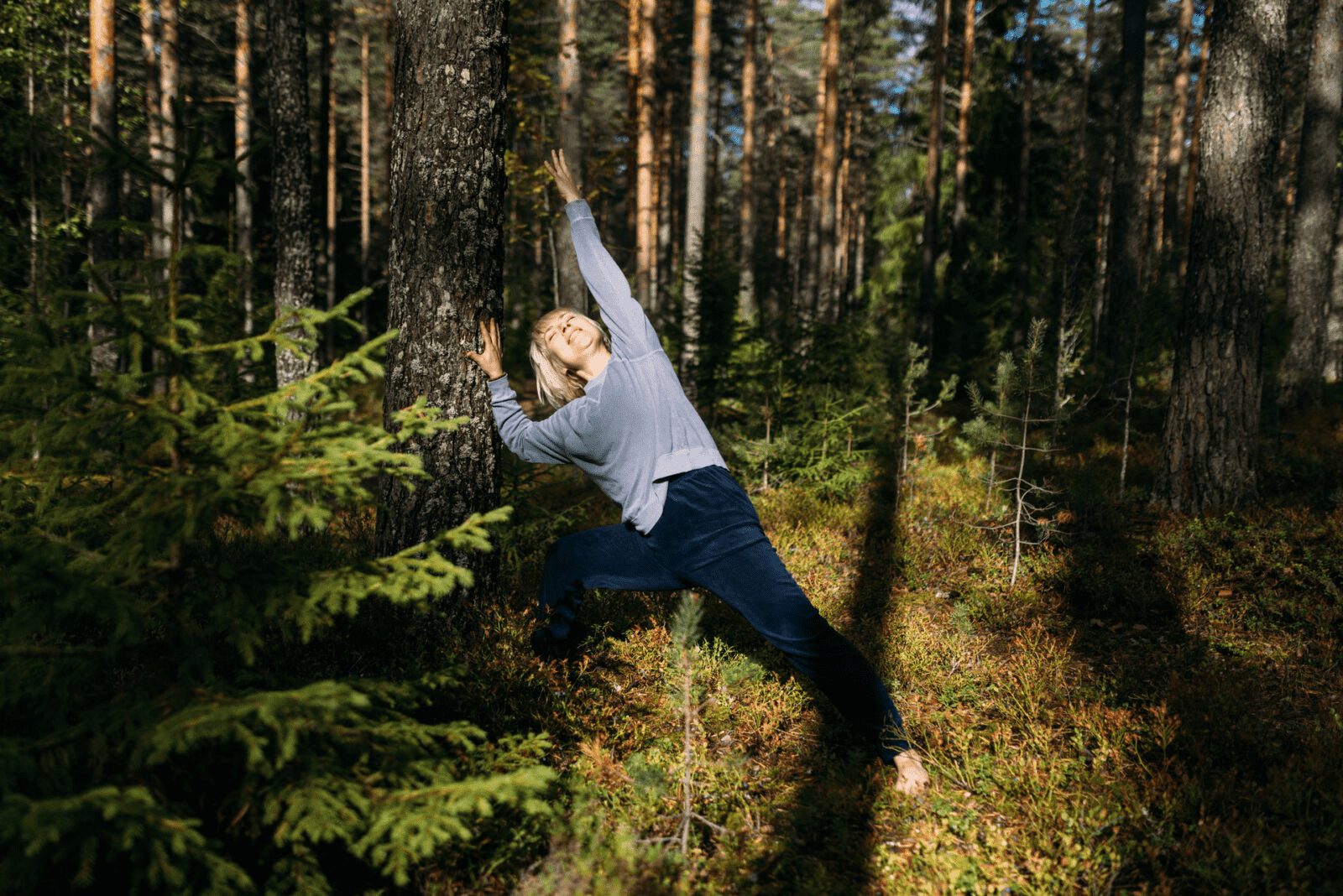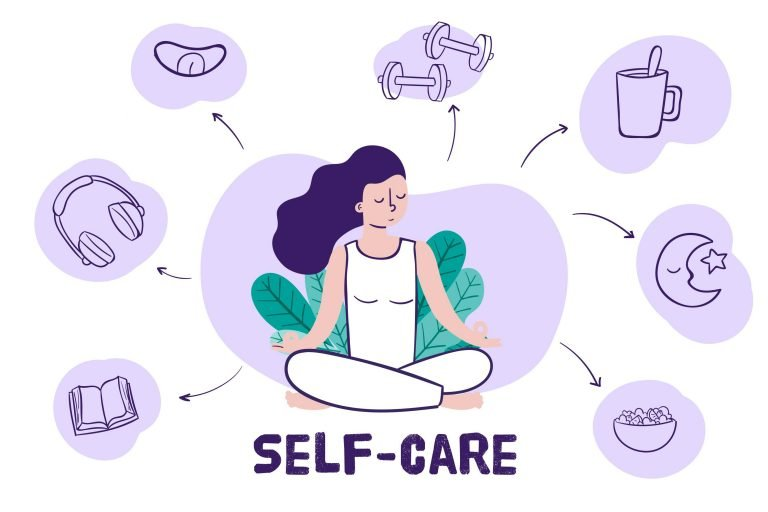Embracing Nature's Healing Power
Nature offers a wealth of restorative benefits, from reducing stress to boosting immunity. Even brief exposure to natural environments can significantly improve our mental and physical health. Here's how to harness nature's power:
Practical Guidance: Connecting with Nature
- Forest Bathing (Shinrin-Yoku): Immerse yourself in a forest environment, engaging all your senses. Focus on the sights, sounds, smells, and textures of the forest. No hiking or specific activity is required; simply be present. Consider exploring local parks or nature reserves. New York State Forest Bathing Program provides resources.
- Mindful Walking: Take a walk in nature, paying attention to each step and the sensations in your body. Notice the details of your surroundings, such as the colors of the leaves, the patterns of the bark, and the movement of the wind.
- Gardening: Cultivating a garden, even a small one, can be incredibly therapeutic. The act of nurturing plants connects us to the earth and provides a sense of accomplishment.
- Nature Journaling: Record your observations and reflections about nature in a journal. This can help you deepen your connection to the natural world and appreciate its beauty.
- Outdoor Meditation: Find a quiet spot in nature and practice meditation. Listen to the sounds of nature and focus on your breath.
Evaluating Your Nature Connection Options
Consider these factors when choosing nature-based activities:
- Accessibility: How easy is it to access natural environments from your home or workplace? Choose activities that are convenient and sustainable in the long run.
- Personal Preferences: What types of natural environments do you enjoy most? Do you prefer forests, beaches, mountains, or gardens?
- Time Commitment: How much time can you realistically dedicate to nature-based activities each week? Start small and gradually increase your time as you become more comfortable.
- Physical Ability: Choose activities that are appropriate for your physical abilities. If you have mobility limitations, consider gardening or spending time in a park with accessible trails.
- Weather Conditions: Be mindful of the weather and dress appropriately. Avoid spending time outdoors during extreme weather conditions.
The Power of Stillness: Cultivating Inner Peace
In our fast-paced world, stillness is often overlooked. However, taking time to quiet the mind and body can have profound benefits for our well-being. Regular stillness practices can reduce stress, improve focus, and promote emotional resilience.
Practical Guidance: Creating Moments of Stillness
- Meditation: Practice meditation for even just a few minutes each day. There are many different types of meditation, so experiment to find one that resonates with you. Mindful.org offers a good introduction to meditation.
- Deep Breathing Exercises: Practice deep breathing exercises to calm your nervous system. Inhale deeply through your nose, hold for a few seconds, and exhale slowly through your mouth.
- Yoga: Yoga combines physical postures, breathing techniques, and meditation to promote relaxation and well-being.
- Mindful Activities: Engage in activities that require your full attention, such as cooking, painting, or playing a musical instrument.
- Digital Detox: Disconnect from technology for a period of time each day. Turn off your phone, computer, and television, and allow yourself to be present in the moment.
Long-Term Considerations: Maintaining Stillness Practices
Sustaining stillness practices requires commitment and consistency. Here are some long-term considerations:
- Schedule Time: Set aside dedicated time for stillness practices each day, even if it's just for a few minutes.
- Create a Routine: Develop a consistent routine that incorporates stillness practices into your daily life.
- Find a Quiet Space: Create a designated space in your home where you can practice stillness without distractions.
- Be Patient: It takes time to cultivate stillness. Don't get discouraged if your mind wanders or if you struggle to focus.
- Adapt Your Practice: As your needs and preferences change, adapt your stillness practices accordingly.
The Importance of Connection: Nurturing Meaningful Relationships
Human connection is essential for our well-being. Strong social connections provide us with a sense of belonging, support, and purpose. Nurturing meaningful relationships can improve our mental and physical health and help us cope with stress.
Practical Guidance: Fostering Connection
- Spend Time with Loved Ones: Make time to connect with family and friends on a regular basis.
- Join a Community Group: Participate in activities with people who share your interests, such as a book club, a sports team, or a volunteer organization.
- Practice Active Listening: When someone is speaking, give them your full attention and try to understand their perspective.
- Express Gratitude: Let people know that you appreciate them and their presence in your life.
- Offer Support: Be there for others when they are going through difficult times.
Long-Term Considerations: Maintaining Healthy Relationships
Maintaining healthy relationships requires effort and commitment. Here are some long-term considerations:
- Communication: Communicate openly and honestly with your loved ones.
- Boundaries: Set healthy boundaries to protect your time and energy.
- Compromise: Be willing to compromise and find solutions that work for everyone.
- Forgiveness: Forgive others for their mistakes and move forward.
- Quality Time: Spend quality time with your loved ones, engaging in activities that you both enjoy.
Data on the Benefits of Nature, Stillness, and Connection
| Benefit | Supporting Data | Source |
|---|---|---|
| Stress Reduction | Studies show that spending time in nature can lower cortisol levels, a hormone associated with stress. | Environmental Science & Technology |
| Improved Mood | Research suggests that nature exposure can increase feelings of happiness and well-being. | Journal of Environmental Psychology |
| Enhanced Immune Function | Studies have found that forest bathing can increase the activity of natural killer (NK) cells, which play a role in immune function. | Environmental Health and Preventive Medicine |
| Reduced Blood Pressure | Research indicates that spending time in nature can lower blood pressure. | Journal of Epidemiology |
| Increased Longevity | Strong social connections are associated with increased longevity and reduced risk of mortality. | PLoS Medicine |
FAQ: Wellness Beyond the Gym
- Q: How much time should I spend in nature each week?
- A: Even small amounts of time in nature can be beneficial. Aim for at least 2 hours per week, but any amount is better than none.
- Q: What if I don't have access to green spaces?
- A: Even if you live in an urban environment, you can find ways to connect with nature. Visit local parks, community gardens, or even just bring plants into your home.
- Q: How can I incorporate stillness practices into my busy schedule?
- A: Start small. Even just a few minutes of meditation or deep breathing each day can make a difference. You can also incorporate mindful activities into your daily routine.
- Q: I'm shy. How can I build stronger social connections?
- A: Start by finding activities that you enjoy and that involve other people. Join a club, volunteer, or take a class. Focus on building connections with a few people rather than trying to be friends with everyone.
- Q: What are the benefits of "forest bathing"?
- A: Forest bathing, or Shinrin-Yoku, is the practice of immersing yourself in the atmosphere of the forest. It's been shown to reduce stress hormones, lower blood pressure, and boost the immune system.
Disclaimer: This information is for informational purposes only and should not be considered medical advice. Consult with a healthcare professional before making any changes to your wellness routine.
Sources:
- Scientific Reports - Spending at least 120 minutes a week in nature is associated with better health and wellbeing
- American Psychological Association - Nurturing Relationships
- International Journal of Environmental Research and Public Health - The Mental and Physical Health Outcomes of Green Exercise





